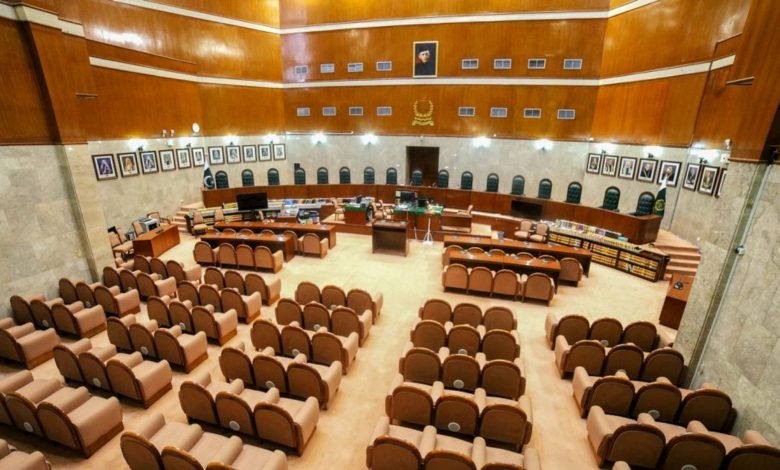SC strikes down 15-year age relaxation for Sindh govt jobs

The Supreme Court struck down a Sindh government decision of allowing age relaxation of up to 15 years in the upper age limit, and upheld the Sindh High Court (SHC) order regarding the September 8, 2020 notification.
The Sindh government had notified the age relaxation in the upper age limit for the recruitment of government employees through the Sindh Public Service Commission (SPSC). It was communicated that the general age relaxation applied to vacancies in all the Sindh government departments.
“The powers to authorise age relaxation for up to 2 years was vested in the secretary of the concerned department while the chief secretary was authorised to accord age relaxation for up to 5 years only,” said a 16-page judgment, authored by Justice Muhammad Ali Mazhar.
“Even in the APT Rules, the maximum age relaxation limit was 10 years which was by itself highly unjustified and excessive, and rather than curtailing this period by setting a well thought-out benchmark and being mindful of the norms of reasonableness and proportionality, the Government of Sindh, without any justifiable rhyme or reason, extended the age relaxation up to 15 years,” it added.
it said that on the judicial notice of an unstructured exercise of discretion, extending a huge benefit of upper age relaxation, the chief secretary categorically admitted the anomaly but also placed an irrational justification that since no major appointments were made in over a decade, this benefit was, thus, accorded.
“Nobody had stopped the government from initiating the recruitment process through the SPSC in line with the requirement of human resource and if, for any reason, the Government of Sindh discontinued or banned the recruitment, then it does not give license to exercise unbridled discretion in granting age relaxations beyond logic,” the judgment said.
In the context of the recruitment in issue, the judgment noted that the maximum age was 30 years; if 15 more years were added, then a person, if selected for job, would join his duty under the age of 45 years and retire upon attaining the age of 60 years.
“Just on a 15 years’ tenure of service, he will be entitled to claim huge pensionary benefits, including other retiring benefits, which is also discriminatory to those employees who gave their blood and sweat, and toiled and served the government for more than 25 to 30 years,” the judgment added.
It said that the chief secretary rightly avowed in his concise statement that 15 years’ public service till retirement would entail a heavy burden on the government exchequer to manage substantial pensionary benefits.
To avoid and control such financial burden, the judgment continued, the chief secretary said he had already forwarded proposals to the provincial cabinet to withdraw the notification, omit Rule 12 (2) of the APT Rules, and constitute a committee for furnishing recommendations and submit the draft of the Sindh Civil Servants (Relaxation of Upper Age Limit) Rules, 2024, for the approval of Cabinet.
The court said that the purpose of holding any examination by the SPSC was to select and choose the most deserving and competent candidates. The wrong selection of “blue-eyed” candidates, based on nepotism, favouritism, or external pressures, would lead to chaos and turmoil in the civil service structure, creating unrest and discontent among civil servants with serious repercussions.
“In all fairness, merit should be the sole criterion in the selection process, as it is an integral part of good governance. A lack of transparency or preferential treatment of undeserving candidates in the appointment process amounts to a brutal murder of merit and excellence,” it said.
“The appointment process must be transparent, ensuring that only competent individuals are allowed to serve, rather than those who are incompetent and unskilled. The menace of favouritism, nepotism, and preferential treatment in the appointment process of civil servants is always considered pernicious and devastating,” it continued.
“The utmost compelling advantage of transparency in recruitment is that it essentially ratifies and disseminates public confidence in the impartiality of the process and authenticates that the appointments are not manipulated or a sham,” it added.
The judgment emphasised that a transparent recruiting process should be marked by unambiguity, uprightness, trustworthiness, and even-handedness, adding that honesty and integrity were the best means to magnetise talented individuals suited for the job

